Extremophiles are organisms that God designed with uncommon ability to live in extreme environments that would kill most other life. Many species of bacteria and animals live in undersea volcanic vents where temperatures exceed 100°C (212°F). Check out this fascinating article that induces God-worship. Extremophiles are not only able to survive in such conditions, they thrive. In fact, they could not survive in the conditions most other life considers ideal. When one hand is open to the blessing of the Lord and the other is open to distributing those blessings, Christians become a conduit. We also become susceptible to living life on the extremes of blessing and want. We are pulled out of the life in the middle. We become Spiritual Extremophiles.
In human society a defining quality of life in the middle is risk mitigation. We avoid extreme breakdown in our quality of life by signing up for programs that “ensure” protection against catastrophic loss. Unconsciously we plan our day to avoid difficulty, even designing contingency plans in case our plans don’t unfold as we designed. Ironically, we pay a steep cost for our faux safety: avoiding low lows can also restrict our access to high highs. People averse to risk do not climb mountains. They lose the opportunity to witness the grandeur of a mountaintop view when they purchase security from painful events; events that might never happen or may occur in spite of one’s effort.
Humble recognition of our short-sightedness is good soil for deeper intimacy with God. When we find ourselves in positions of utter dependence on the Lord to provide according to the content, amount, and timing that He deems most appropriate for maturing us into His likeness, we discover that our expectations do not always align with God’s purposes (Proverbs 16:1-2, 33). Even mature believers still see through a glass darkly (I Corinthians 13:12). We will recognize in ever-greater degrees the extent of our dependence on God our Savior when we cease striving so energetically to control our futures. In reality, all of us are utterly 100% dependent on Jehovah Jireh,“God our Provider”, all the time (Colossians 1:16-17). We just don’t recognize our weak state—or we actively subvert our awareness, convincing ourselves that ignorance is bliss. But is ignorance truly bliss? Hebrews 12:14 says “without sanctification no one will see the Lord.” Sanctification means to be conformed more and more into the likeness of Jesus Christ. This process includes submitting our expectations of comfort in this life to the will of our Father in Heaven who “works all things for the good of those who love Him” (Romans 8:28). The tastiest fruit of casting our bread upon the waters is seeing with greater clarity the face of our Savior Jesus Christ, the One who loved us to death.
The sooner we recognize our dependence on Him and adjust our lifestyles to match that truth, the sooner we’ll experience wondrous works of God. Nobody can really mitigate risk – regardless what the insurance salesmen may tell you. Let us accept the possibility of suffering, no, the certainty of suffering, and avail ourselves the pleasure of seeing wonders that are unmistakably God’s. Embracing our lack of contingency control will nurture the intimacy with God for which He wired us; seeing His mighty hand of provision for our welfare will stir in us the praise that satisfies both God and us. Praise satisfies because we were designed to worship (e.g., Psalm 33:1).
Thus, the more we relinquish our obsession with risk mitigation, the more we will tangibly experience our chief purpose: To glorify God and enjoy Him forever.
What was the last thing God told you to do that you did not do because of fear? For the joy of knowing God go do that thing.
Cast your bread upon the waters, for you will find it after many days. 2 Give a portion to seven, or even to eight, for you know not what disaster may happen on earth. 3 If the clouds are full of rain, they empty themselves on the earth, and if a tree falls to the south or to the north, in the place where the tree falls, there it will lie. 4 He who observes the wind will not sow, and he who regards the clouds will not reap. 5 As you do not know the way the spirit comes to the bones in the womb of a woman with child, so you do not know the work of God who makes everything. 6 In the morning sow your seed, and at evening withhold not your hand, for you do not know which will prosper, this or that, or whether both alike will be good.
–Ecclesiastes 11:1-6
_____________________________________________________________________________________________
This blogpost was inspired in great measure by a sermon I had the pleasure of being present for last year in Indiana. Pastor Jeff Waibel, of the Apostolic Christian Church of Leo, did a masterful job with Ecc 11. So many great takeaways. Here’s my favorite line from about minute 42: “Paul was not taking action in the face of uncertainty, he knew with certainty who he was and what God had called him to do. And so therefore he did certain things.”
A paraphrase of this portion of the sermon might be “For the unbeliever a ‘leap of faith’ is action in the face of uncertainty. For the Christian, faith is action in the face of who God is and what he has called you to do.”
If you liked this blogpost and want to meditate further on Ecclesiastes 11, I encourage you to follow the link below and navigate to March 19th, 2017.
May God make fruitful your reading of His precious Scriptures.
http://www.leoacchurch.org/PreviousSermons.asp


The forces of Life can thrive in extreme conditions.
We too are made to thrive even in the face of adversity ONLY because we are Children of the Living God.
Our Father does not abandon us, rather he strengthens us THROUGH the troubles to emerge stronger.
Thanks for you insights
Thanks again Sig. I enjoyed devotions in Psalm 68 this morning and it prompted a thought for a blogpost that will touch on this beautiful and encouraging reality that God confirms in us that we are His people even as He gives us strength to persevere through hardship.